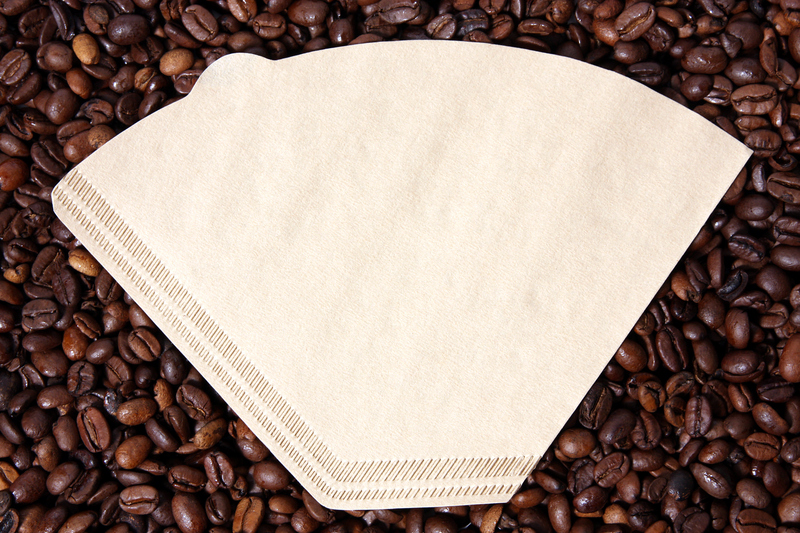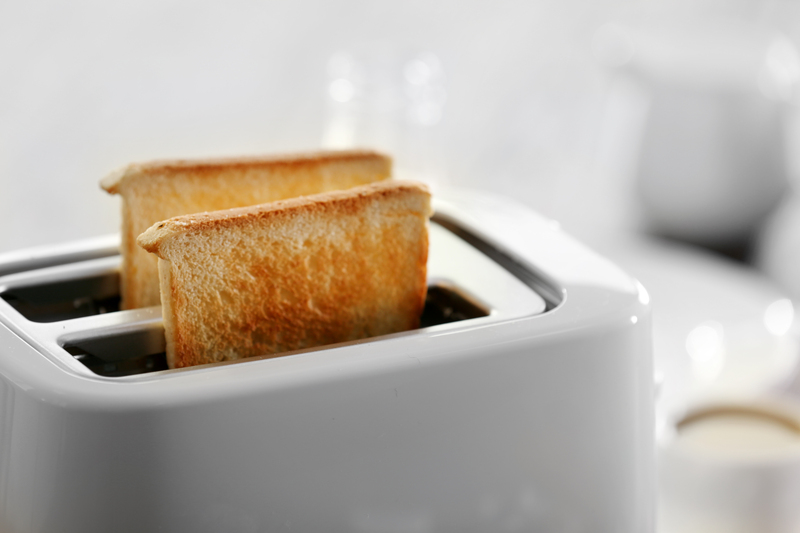Step into a Fresh Home: How to Remove Pet Odor
Posted on 03/09/2025
Step into a Fresh Home: How to Remove Pet Odor
There's nothing quite like coming home to your furry friends, but sometimes their pet odors can become overwhelming. Whether you have a rambunctious puppy, a lazy cat, or a whole household of pets, learning how to eliminate pet odor effectively can make your living space fresh, welcoming, and comfortable for everyone. This comprehensive guide will teach you exactly how to remove pet odor from your home using proven strategies, expert tips, and natural solutions.
Why Does Pet Odor Happen?
Before tackling the problem, it's crucial to understand why pet odors occur in the first place.
- Natural body oils: Pets release natural oils that can seep into fabrics and carpets.
- Accidents: Even the best-trained animal may have the occasional accident, leaving behind urine, vomit, or feces stains.
- Dander and fur: Pet dander and shed fur can settle into fabrics, embedding odor over time.
- Bacteria: Moist environments from spills, drool, or wet fur can encourage bacterial growth, increasing smells.
Understanding these sources can help target odors at their root and prevent them from returning.

How to Remove Pet Odor from Your Home: An Actionable Step-By-Step Guide
1. Identify Odor Hotspots in Your Home
Where you smell odor is not always where it originated. Start by inspecting:
- Carpets and area rugs
- Pet bedding and blankets
- Soft furnishings (couches, chairs, pillows)
- Cracks or corners where accidents may have occurred
- Walls and baseboards near litter boxes or kennels
Use your nose and a blacklight (UV flashlight) to detect old urine stains invisible to the naked eye.
2. Remove and Wash Affected Fabrics
Regular laundering is your first line of defense. Remove all washable items your pet uses:
- Pet beds, blankets, and pillows
- Slipcovers and cushion cases
- Machine-washable rugs
- Toys and soft accessories
Wash items with hot water and a strong enzymatic cleaner specifically designed for removing pet odors. Enzymatic cleaners break down odor-causing molecules, effectively removing pet smell rather than masking it. Add a cup of white vinegar to the rinse cycle for extra deodorizing power.
3. Deep Clean Carpets and Upholstery
For items that can't be laundered:
- Vacuum regularly to remove fur, dander, and debris.
- Rent or purchase a carpet cleaner with a pet odor removal solution. Most supermarkets offer daily rentals.
- For tough spots, use an enzyme-based spray and allow it to sit for 10-15 minutes before blotting with a clean towel.
If the odor persists, consider hiring a professional carpet cleaning service that specializes in eliminating pet odors.
4. Tackle Hard Floors and Baseboards
Pet accidents aren't limited to carpets. Hard surfaces also need attention:
- Mop floors with a vinegar and water solution (one part vinegar to four parts water). Vinegar neutralizes odors and disinfects.
- For tile grout or deeply set stains, use a baking soda paste and scrub gently with a brush.
- Wipe down baseboards and walls using mild dish soap or diluted vinegar.
5. Address Air Quality
Odors can linger in the air even after surfaces are washed. To refresh your indoor air:
- Open windows and doors daily to promote cross-ventilation.
- Boil a pot of water with lemon slices and a dash of cinnamon as a natural air deodorizer.
- Use an air purifier with a HEPA filter and activated carbon to trap airborne pet dander and odors.
- Change HVAC and air purifier filters regularly.
6. Clean or Replace Litter Boxes and Pet Enclosures
The most notorious source of pet smells is often the litter box or pet crate:
- Scoop litter daily and change it regularly, at least once a week.
- Wash the box with hot water and mild soap. Do not use ammonia-based cleaners--the smell is similar to urine and may encourage re-soiling.
- Replace old or scratched plastic litter boxes that trap odors in hard-to-clean grooves.
- Line crate and cage floors with machine-washable pee pads and launder them frequently.
Natural Solutions for Removing Pet Odor
You don't need to rely on harsh chemicals to keep your home fresh. Here are natural pet odor remedies you can use safely around pets and children:
- Baking soda: Sprinkle liberally on carpets and upholstery. Let sit for 15-30 minutes, then vacuum thoroughly. Baking soda absorbs and neutralizes odors.
- Vinegar: Its natural acidity kills bacteria and neutralizes urine smells. Use in laundry or as a spray for hard surfaces.
- Activated charcoal: Place charcoal bags or bowls in musty areas (closets, pet rooms) to absorb lingering smells.
- Lemon juice: Dilute and use as a natural disinfectant and deodorizer for mopping floors and cleaning pet bowls.
Long-Term Strategies to Keep Your Home Fresh
Establish a Cleaning Routine
Consistency is key for pet odor control. Here's a quick checklist:
- Vacuum all floors and furniture at least 2-3 times per week.
- Mop hard floors weekly with a deodorizing solution.
- Launder pet bedding and toys weekly.
- Deep clean carpets and upholstery every 3-6 months.
Groom Your Pets Regularly
Healthy, clean pets mean a fresher-smelling home:
- Bathe dogs every 4-8 weeks using a pet-safe shampoo.
- Brush pets regularly to remove excess fur and dander.
- Keep nails trimmed to prevent scratching and accidents.
- Check ears and teeth, which can also be sources of odor.
Invest in Pet-Friendly Products
Certain home products are designed to minimize pet odor removal and protect furniture:
- Use washable slipcovers on sofas and chairs.
- Opt for machine-washable rugs and pet beds.
- Place absorbent mats at entryways to capture muddy paws.
- Try enzyme-based sprays for immediate accident cleanups.
Common Mistakes When Trying to Remove Pet Odor
- Masking odors with air fresheners: These only provide a temporary solution and can irritate sensitive pets.
- Using ammonia-based cleaners: Ammonia smells similar to urine, attracting repeat offenses.
- Skipping deep cleaning: Light surface cleaning won't reach embedded odors in carpet pads or upholstery foam.
- Ignoring ventilation: Fresh air is essential for evaporating odor molecules and reducing humidity.
When to Call a Professional for Pet Odor Removal
Sometimes, DIY cleaning methods just aren't enough, especially for lingering odors or repeated accidents. Consider hiring a professional pet odor removal service if:
- Smells persist after multiple cleanings.
- There are extensive old urine stains or damage to subfloors.
- Severe pet odors are causing health issues or allergy flare-ups.
- You're preparing to sell or rent your home and need a neutral scent throughout the space.
Professional services use powerful extraction methods, ozone treatments, or deep-penetrating enzyme formulas unavailable to consumers.

FAQs about Pet Odor Removal
How can I prevent pet odor from building up in my home?
Prevention is much easier than cure! Regularly cleaning, grooming pets, and addressing accidents as soon as they happen will keep odors at bay. Make sure to wash all fabrics and secure accident-prone areas (like rooms with rugs or soft upholstered furniture).
Is it safe to use commercial pet odor neutralizers around my pet?
Most commercial odor removers are safe when used as directed. Look for products labeled as non-toxic, pet-safe, and free of harsh perfumes or chemicals. When in doubt, call your vet for advice on the best pet odor eliminators.
Can diet influence pet smell?
Absolutely. Poor diet can cause stronger body odors, more frequent "accidents," and worse-smelling waste. Consult your vet for nutrition tips tailored to your pet's breed, age, and health needs.
Why does my house still smell after cleaning?
Odors may persist if:
- There's hidden urine or feces in carpet pad or furniture foam.
- Bacteria remain after surface cleaning.
- Ventilation is poor and fresh air isn't circulating.
Deep cleaning with enzyme cleaners and improving air flow will solve most problems.
Final Thoughts: Step into a Fresh, Pet-Friendly Home
Removing pet odor from your home doesn't have to be a battle. With the right approach--ranging from deep cleaning fabrics, utilizing natural odor absorbers, maintaining good ventilation, and addressing air quality--you can step into a fresh home every single day. Your pets are treasured family members; their scent doesn't have to be. Use these tips and enjoy a home that's clean, comfortable, and always ready for guests--both human and animal.
Ready to Breathe Easy?
Are stubborn pet odors keeping you from fully enjoying your space? Try the techniques above and discover how easy it can be to remove pet odor for good. With consistent maintenance, smart cleaning products, and a little dedication, your house will smell as fresh as it feels.





